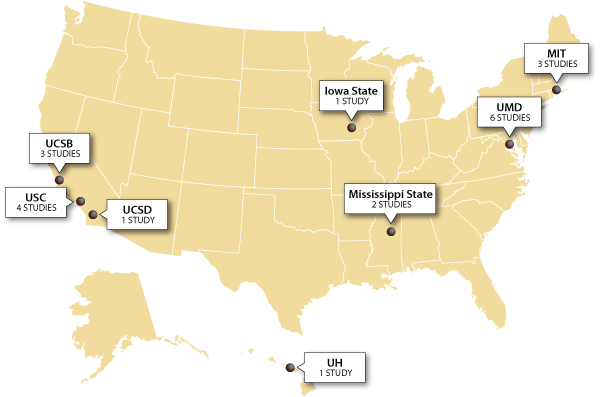Much of the literature in the Software Engineering community concerning programmer productivity was developed with assumptions that do not necessarily hold in the High Performance Computing (HPC) community:
- In scientific computation insights culled from results of one program version often drives the needs for the next. The software itself is helping to push the frontiers of understanding rather than the software being used to automate well-understood tasks.
- The requirements often include conformance to sophisticated mathematical models. Indeed, requirements may often take the form of an executable model in a system such as Mathematica, and the implementation involves porting this model to HPC systems.
- "Usability" in the context of an HPC application development may revolve around optimization to the machine architecture so that computations complete in a reasonable amount of time. The effort and resources involved in such optimization may exceed initial development of the algorithm.
Due to these unique requirements, traditional software engineering approaches for improving productivity may not be directly applicable to the HPC environment.
As a way to understand these differences, we are developing a set of tools and protocols to study programmer productivity in the HPC community. Our initial efforts have been to understand the effort involved and defects made in developing such programs. We also want to develop models of workflows that accurately explain the process that HPC programmers use to build their codes. Issues such as time involved in developing serial and parallel versions of a program, testing and debugging of the code, optimizing the code for a specific parallelization model (e.g., MPI, OpenMP) and tuning for a specific machine architecture are all topics of study. If we have those models, we can then work on the more crucial problems of what tools and techniques better optimize a programmer’s performance to produce quality code more efficiently.
Since 2004 we have been conducting human-subject experiments at various universities across the U.S. in graduate level HPC courses (Figure 1). Graduate students in a HPC class are fairly typical of a large class of novice HPC programmers who may have years of experience in their application domain but very little in HPC-style programming. Multiple students are routinely given the same assignment to perform, and we conduct experiments to control for the skills of specific programmers (e.g., experimental meta-analysis) in different environments. Due to the relatively low costs, student studies are an excellent environment to debug protocols that might be later used on practicing HPC programmers.
Limitations of student studies include the relatively short programming assignments due to the limited time in a semester and the fact these assignments must be picked for the educational value to the students as well as their investigative value to the research team.

In this article, we present both the methodology we have developed to investigate programmer productivity issues in the HPC domain (Section 2), some initial results of studying productivity of novice HPC programmers (Section 3), and current plans for improving the process in the future (Section 4).






